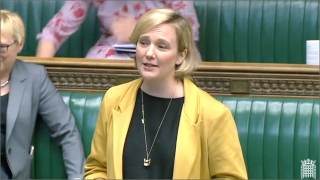Gov forces abortion and same-sex 'marriage' on NI

In an unashamed attempt to force a feminist LGBT agenda onto Northern Ireland, the government has confirmed that it will push ahead with plans to introduce same-sex ‘marriage’ and abortion into the province.
In a landmark vote on Tuesday night, the House of Commons approved amendments to the Northern Ireland (Formation of Executive) Bill, liberalising abortion and extending same-sex ‘marriage’ to Northern Ireland in the absence of a devolved government.
The Prime Minister was in the Commons on Tuesday night but abstained from the votes. However, Downing Street confirmed that, “The government has heard the message the house has delivered, and will seek to act upon it,” suggesting that Theresa May at least supports the principles of the backbench amendments.
Overwhelming majority
The New Clause 1 to the Northern Ireland Bill, proposed by Labour MP Conor McGinn, states that if a devolved government is not restored before 21 October, then the Westminster government should legislate for same-sex ‘marriage’ in Northern Ireland. The amendment was approved with 383 votes in favour to 73 against.
New Clause 10, put forward by Stella Creasy MP, who is well-known for her campaigning to liberalise abortion, would enable Westminster to legalise abortion under the same condition. This amendment was approved by 332 votes to 99.
Meanwhile, contenders for the UK’s next PM were split on the decision. Jeremy Hunt MP has said he would support the move to force this legislation on Northern Ireland, while Boris Johnson argued that it should remain a devolved matter.
“Hijacked” by Westminster
The DUP has argued that the Bill, which was supposed to delay an election at Stormont had been “hijacked.” The initial purpose of the Northern Ireland Bill currently before Parliament “is to extend the period for forming an Executive.” Northern Ireland has been without a devolved a government for more than two and a half years, after rows over a financial scandal split the DUP and Sinn Féin.
The Northern Ireland Secretary has twice pushed back her obligation to call an election at Stormont, with it currently due to end on 25 August. However, this new legislation would further delay another election to 21 October, with another possible extension to 13 January 2020.
Yet new clauses to the Bill would effectively force same-sex ‘marriage’ and abortion onto a country that has repeatedly and overwhelmingly rejected them.
Speaking before the same-sex ‘marriage’ amendment was approved, the DUP’s Westminster leader, Nigel Dodds, said the amendment would “drive a coach and horses through the principle of devolution.”
Committee regrets decision to fast-track Northern Ireland Bill
The Constitution Committee, a select committee of the House of Lords, has meanwhile said that it regrets the decision to fast-track the Northern Ireland Bill. The committee’s report looks back over their previous report on what is now the 2018 Northern Ireland (Executive Formation and Exercise of Functions) Act, which concluded:
“We emphasise that in any other circumstances provisions such as these which challenge established constitutional principles would not be acceptable and that no part of the Bill – nor the fast-track procedure by which it is being taken through both Houses – should be taken as a precedent for future legislation.”
Similarly, in their recent report, The Legislative Process: The Passage of Bills Through Parliament, the committee stated:
“We regret that legislation relating to Northern Ireland has regularly been fast-tracked. … Fast-tracking bills relating to Northern Ireland reduces further scrutiny these measures should receive. Routinely fast-tracking in this way is unacceptable, unsustainable and should only be used for urgent matters.”
Regarding the current Northern Ireland Bill, the committee warned against fast-tracking further legislation:
“We reiterate our concern about the routine nature of fast-tracking legislation relating to Northern Ireland. It is constitutionally unacceptable save for exceptional and urgent circumstances. … In our 2009 report, Fast-track legislation: constitutional implications and safeguards, we recommended that, for legislation subject to fast-tracking, the Government should set out its justification for fast-tracking in the explanatory notes to the bill. … We regret that no such justification has been provided in the explanatory notes to this Bill.”
Northern Irish response
English-based newspapers were quick to point to LGBT and pro-abortion campaigners’ responses and celebrations. For example, The Guardian reported that Northern Irish LGBT activists “feel more valued,” and The Mirror called the votes a “landmark step” in Northern Irish history.
However, the response from Northern Irish and Irish newspapers has not been as favourable. An Editorial piece in The Belfast Telegraph pointed out that the votes “show London’s patience running out,” while another article reported that the proposed changes “won’t work,” quoting Northern Irish peer Lord Morrow: “I do not believe that we in this House [the House of Lords] can allow this Bill to pass in its current state. It will cause immense problems.” In Ireland, the response has been much the same, with The Irish Times reporting that the vote on same-sex ‘marriage’ and abortion “undermines Northern Ireland.”
Government is imposing devolved matters
Tim Dieppe, Head of Public Policy for Christian Concern, commented on the vote:
“It is appalling that the government would seek to impose both same-sex marriage and abortion onto a nation that has repeatedly rejected them. The willingness of some members of parliament to ignore the wishes of a devolved government contravenes the very principles of a representative democracy.
“This amounts to a form of cultural imperialism where values are imposed on the people. 100,000 people are alive today because of the abortion laws in Northern Ireland. Of all the priorities for parliament at the present time, they have chosen to prioritise enabling more babies to die and forcing a false definition of marriage on people who don’t want it.
“Westminster should respect the principle of devolution and let the people of Northern Ireland decide what laws to apply rather than imposing these policies and riding roughshod over the constitution.”
